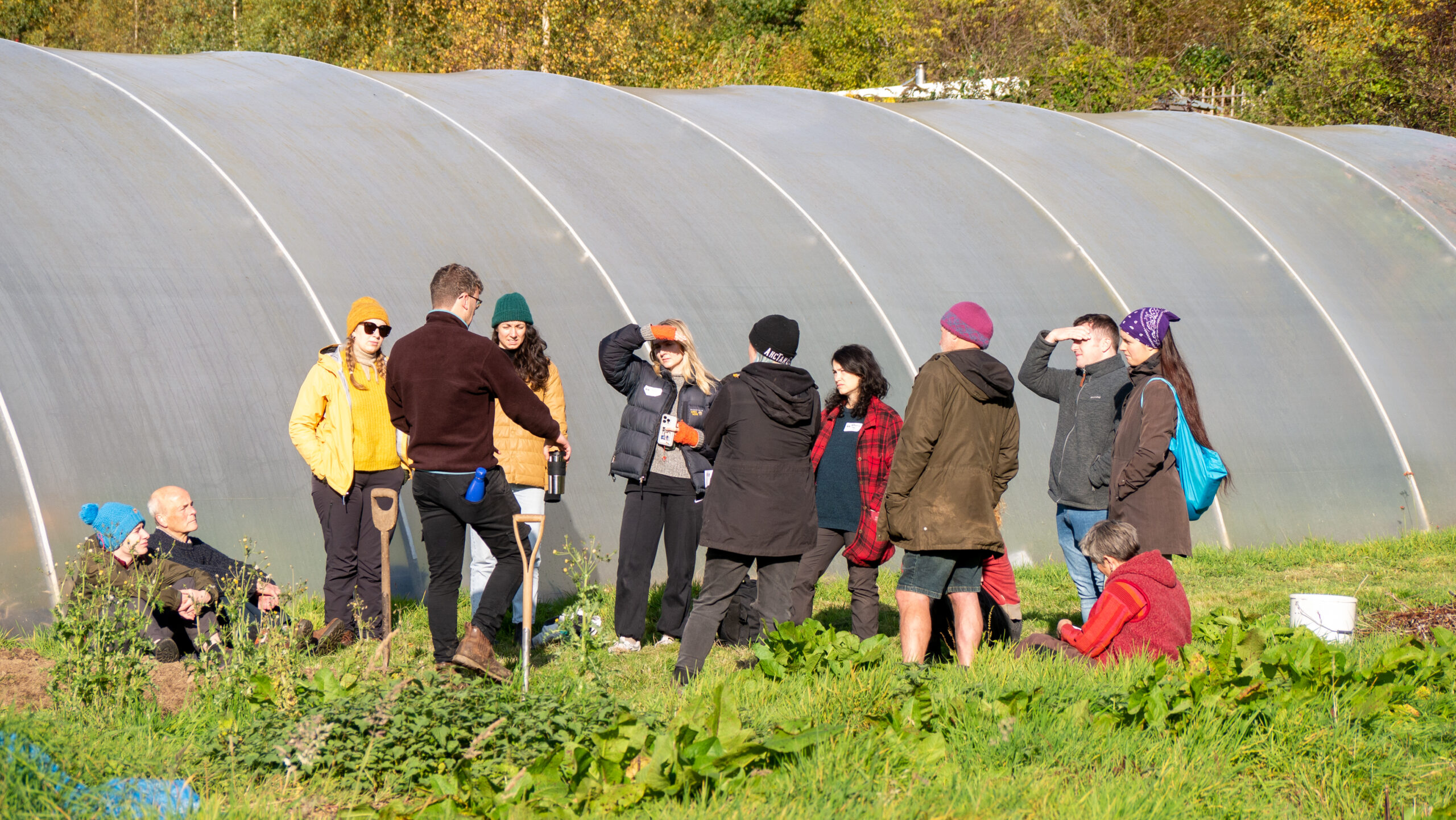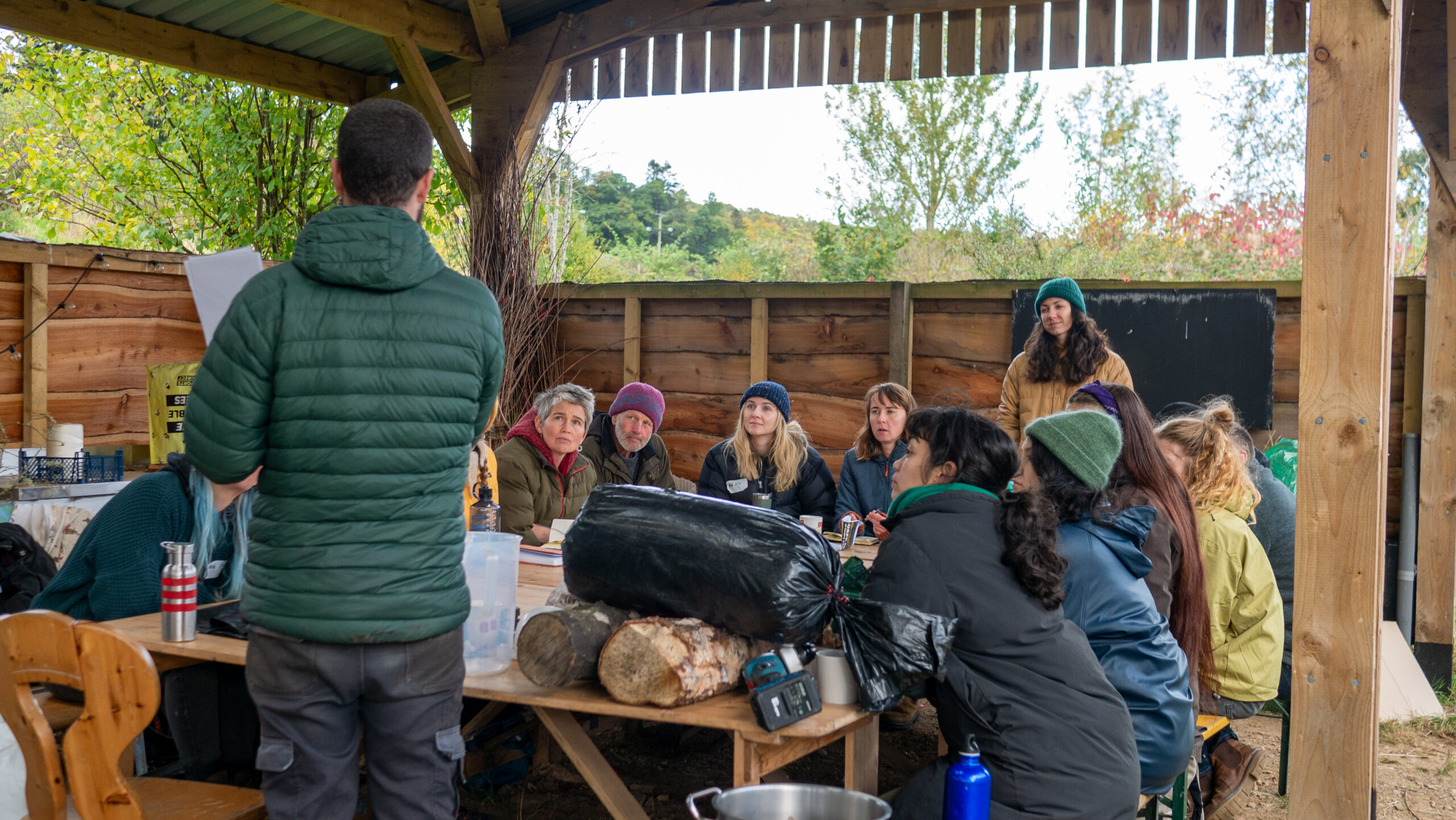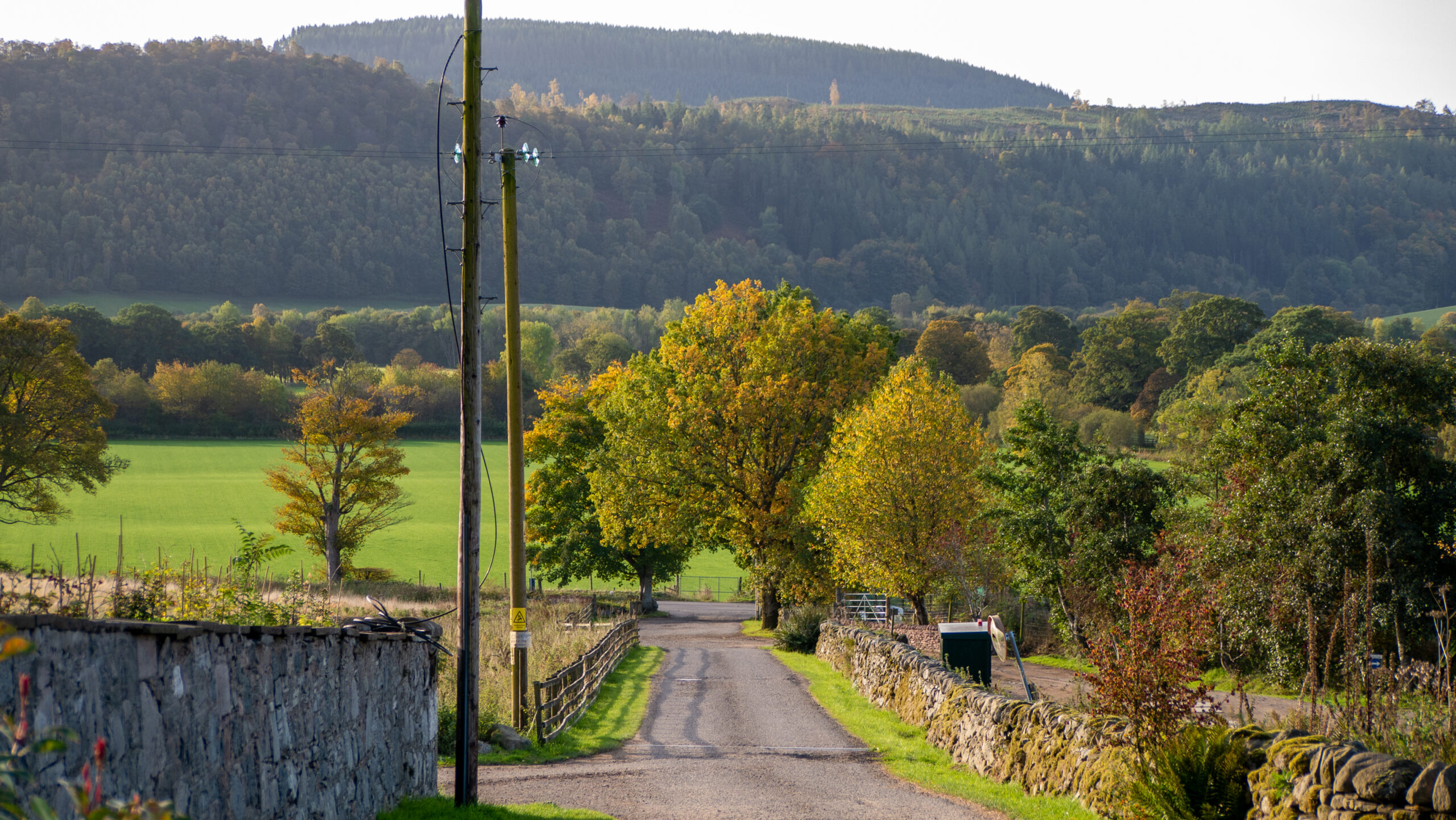Last week we gathered at the beautiful Comrie Croft in the Scottish Highlands for ORFC in the Field, where 60 young growers, crofters, land workers and land justice advocates joined us for two days of dynamic workshops, inspiring talks, folk tales and impromptu ceilidh dancing.
This ORFC in the Field is the first of a series of immersive practical events we will be offering at agroecological farms across the UK over the coming years. As our first on-farm event in Scotland, ORFC in the Field at Comrie Croft set out to explore how young people are finding a way back to the land and farming by rekindling traditional land-based knowledge.
We were delighted to work with local partners, Comrie Croft, Tomnah’a Market Garden, and CoDeL to programme this unique, hands-on learning opportunity. Over the two days, practical workshops re-introduced participants to ancestral skills and how to apply new agroecological knowledge and practices to their farm or plot of land.

Related: Join us ORFC in the Field at OrganicLea in London, April 2025
Scotland’s foremost folklorist, Margaret Bennet welcomed the group to Comrie Croft with a mesmerising evening of storytelling. Sharing historical tales of Comrie’s storied surrounds, anecdotes from growing up on the Isle of Skye, and auld songs that took us on a journey around the Highlands and Islands, Margaret rooted the event in the local landscape.
The following days were packed with practical action. Out on the land, Uist crofter Pàdruig Morrison showed guests how to make a lazy bed to produce great soil with foraged seaweed, brought all the way from Grimsay shores. Comrie’s Croft’s Andrew Donaldson and Tomnah’a’s Catherine Kwella walked groups through the Croft’s beautiful woodlands and the 5-acre market garden site growing flowers, fruit, vegetables and herbs. Throughout, they shared the history of the site and its 12 micro-enterprises, how they accessed land, and their hopes for how it will continue to flourish as a croft and community hub well into the future.
In the barn, Edinburgh’s Rhyze Mushrooms demonstrated how to integrate mushrooms into farms and gardens and explained how cultivating mushrooms can offer more commercial viability for setting up veg box schemes. Over in the cooshed, Finlay Keiller of Seeds of Scotland – the only seed saving enterprise in Scotland – led a session on heritage seed saving, with an emphasis on paying respect to the historical and cultural significance of each seed sown and the stories seeds tell.

Related: Join us ORFC in the Field at Wakelyns in Suffolk, May 2025
With many new entrants and land-seekers in attendance, land justice was at the fore of discussions. Farmer’s son and researcher, Col Gordon, linked land justice with language and gathered guests in the barn to explore old stories found within the Gàidhealtachd. With an incredible analogue powerpoint made of wooden slats drilled together, Col illustrated how the Gaelic language offers new (old) ways of seeing land. Dùthcas, an ancient Gaelic word with myriad intertwined meanings, for example, evokes an understanding that we belong to the land, rather than the other way around.
This new clarity of seeing was developed through a session with CoDel’s Theona Morrison and Thomas Fisher in which each guest developed their vision for a small parcel of land. Small groups worked together to share hopes and challenges and imagine the seeds of change that they could plant in their communities. Later, we also had an empowering discussion about access to land with Josh Doble and Tara Wight looking at both the history of struggles for land in Scotland, and the mechanisms by which communities can access land now.

In our last session, David Carruth regaled the group with an inspiring story of farming in some of Scotland’s most difficult landscapes, and how he mob grazest with his herd of Mangalitza pigs as part of an agroforestry system in north Ayrshire. Peppered with Scots poems, David’s story of converting his family farm to regenerative practices ended with a call to shout for the land.
Evenings were filled with traditional folk music as Pàdruig Morrison offered an acoustic accordion performance of reels and strathspeys. A particularly rousing piece was passed on to Pàdruig from his grandfather’s grandmother, who lived on a now uninhabited Western Isle. Though now owned by foreign elites, the tune once again evoked new ways of understanding an innate belonging and connection to place. Pàdruigs jigs led us in an impromptu ceilidh in the barn, and the event finished with everyone gathered in the dark of the croft to witness the magical Northern Lights display.
We came away from ORFC in the Field at Comrie Croft empowered with new ways of seeing land, enlivened by new practical knowledge and excited to carry forward the hands-on skills at the 16th Oxford Real Farming Conference in January. Watch this space for details of our next ORFC in the Field events in Spring 2025!


